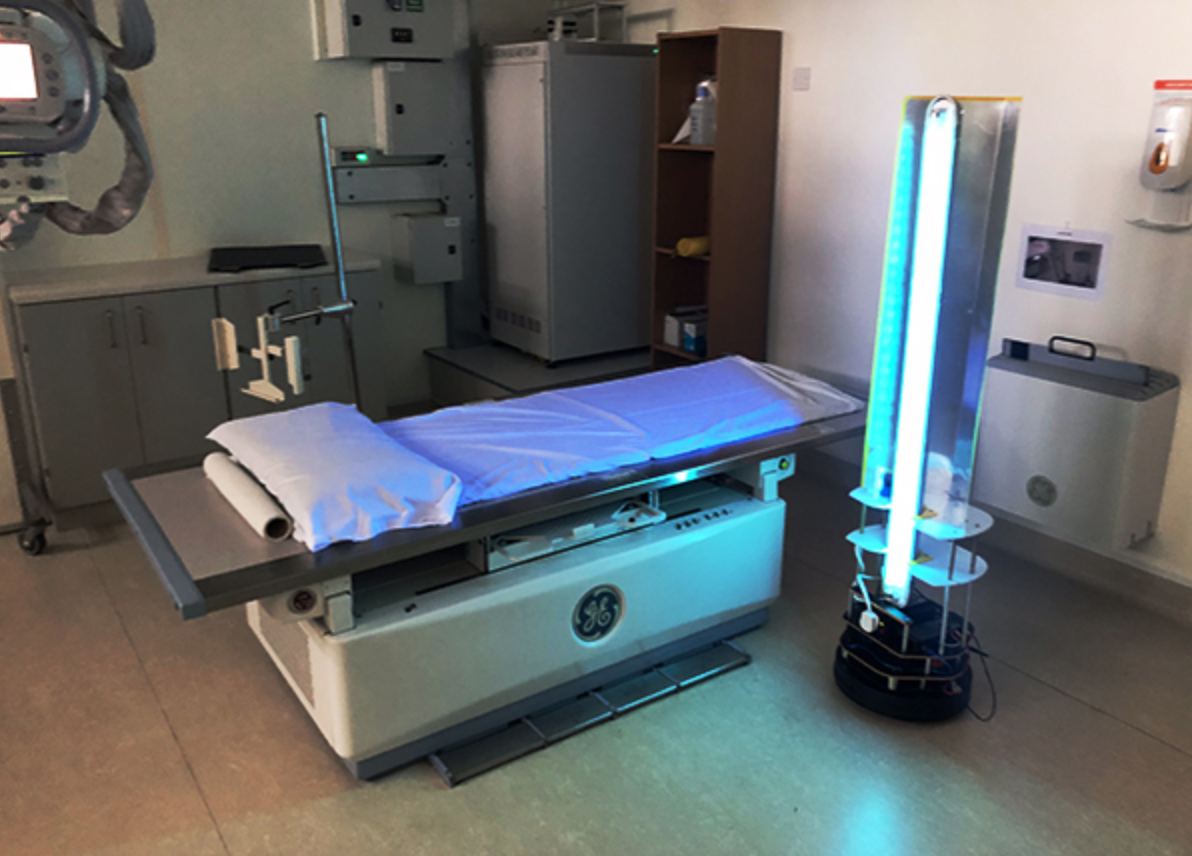- Home
- Business Innovation
- Crisis innovation: Now is the time for your company to work like a startup
Business Innovation
5
min read
Crisis innovation: Now is the time for your company to work like a startup


Don't you want to read? Try listening to the article in audio mode 🎧
Much has been written about how Covid-19 impacts companies, from startups to multinational corporations, are fighting a war on each front and on every stage of their product life cycles. Uncertainty is hovering over us and future scenarios are unfortunately nothing more than speculations - some bolder than others - because when it comes to black swan phenomena, it is impossible to fully understand its long-term effects.
As a company with twenty-three physical campuses, large event facilities and dozens of educational programs all over Europe, Talent Garden has been hit hard as well. Claiming something different would be a lie. That being said, we were born a startup, and as such we speak often and proudly of our “startup spirit” and how it helps us achieve the things we do. After the last two weeks, we can finally say that this culture has been validated. In only two weeks, we have managed to allocate time for ideation, we have moved our classes online, we have enrolled online faculty from all over Europe, we have kept our team spirit high by weekly “aperitifs” and pub quizzes, and we have created and launched our first online learning platform in only fourteen days.
There are countless memes about how Scandinavian countries have been training for social distancing their whole life. Perhaps this could also be said about startups and uncertainty. We have been operating in uncertainty since we were born as a company, and ultimately we love and thrive in it. This is not saying that startups should be the guiding stars in every aspect in this crisis, as contexts are obviously radically different for every business. We do, however, believe that some startup learnings and work methods could be of great help and inspiration for all of us when we are sitting there with a big bag of lemons, longing for lemonade.




Useful approaches from the startup playbook
Startups pivot fast. The traditional startup approach to product development starts with a “needs and pain points” analysis in co-creation with the customer. When an unexpected situation arises and changes the reality of our users, startups quickly pivot and adapt their product to the new context. In Talent Garden’s case, this meant moving all our educational activities online and designing online workshops for our corporate clients. For other companies, it could mean turning hotel rooms to remote work spaces for professionals who need an office away from the family. In the end, it’s about empathizing with your customers and collaborating with them to find solutions. Startups are user-centric. In times of crisis, it is natural to turn the gaze inwards and focus on your own challenges as a business and a team. Since startup product-building methodology involves co-creation with the customer and other stakeholders, this doesn’t happen to startups to the same extent. In Talent Garden, we have used this time to connect with our customers and partners. We have sent out surveys and spoken to our co-working residents and we have scheduled 1 to 1s with partner companies, corporate clients and suppliers. Only by understanding what they are going through can we create new processes, products and initiatives that work. Startup teams are all about communication. Creating a remote work environment is hard for everyone. Most people seek community with other humans and feel safe in groups. However, many startups are used to working closely with colleagues in remote locations, and are used to online “daily standups”, “all hands” meetings with the CEO and fast communication channels like Slack. Startups are often also quick to adopt new technologies and apps to help them work efficiently. Startups love ideating. Startups are used to exploring new avenues. It is the second step of most product building processes, and a vital part of staying relevant in a rapidly changing world. When hit by a crisis, our first instinct is to gather a cross-functional team and ideate on potential opportunities. This is how we created our new online learning platform, Antea, in only two weeks.
One place to start: Map your online opportunities
Recently we completed an online opportunity mapping workshop with a large pharmaceutical client. Although the pharmaceutical industry is not as immediately affected as, for example, the travel industry, there are still challenges - and opportunities - to explore. With physicians focusing all their efforts on battling the Covid-19 virus, sales representatives staying at home and all - small and large - medical conferences being cancelled, the traditional marketing and sales channels of pharmaceutical products are closed down. After an energizing and successful workshop - and we have had a couple of them since then - this is our advice for companies who want to get some startup inspiration in times like this is: 1. Start your workshop by mapping out your stakeholders along the product life cycle. Put time and effort into understanding their new challenges and pain points. Create empathy maps and customer journeys for your most “extreme” customers and perform needs and pain point analyses. Your goal is to use empathy to understand what their - new - needs are. What has remained the same? What has changed? What do the new challenges mean for different stakeholders? 2. Once this is done, start ideating for solutions. In times of crisis, a good way to do this is so-called framestorming, where the facilitator helps the participants spot underlying and intertwined framings and emotions and then gently nudges the connections to help them think in terms of opportunities instead of problems. 3. Get comfortable with digital ideation. Ideating online is different than ideating in person. We are used to doing workshops in groups, receiving immediate face-to-face feedback on ideas and building on each other's ideas in a spontaneous way (a vital part of ideation). Thankfully, with the help of technology this feeling can be recreated with great success. In fact, learning to ideate together online, is a valuable lesson in itself, even once we are let out into our communities again. 4. Bring in people who have tried, failed and succeeded to give advice and inspiration. An efficient way to offer inspiration and leave your workshop participants with actionable ideas, is to invite speakers and/or bring along a couple of case studies. The impact of hearing examples of people who are successfully pivoting their businesses right now is strong. 5. Keep your eyes on the price. Our goal with our opportunity mapping workshops is for the participants to leave the virtual room with inspiration and actionable ideas - with focus on the latter. Inspiration without action is fun, but it won’t lead to anything more than a “wow effect”. In order for an idea to be actionable, you need a couple of necessary conditions, amongst them 1) a clear vision of the problem to be solved, 2) a belief that it could work (the right attitude), 3) the right human resources, and 4) a practical game plan and follow-up sessions.
First steps towards our reality post-Covid-19
The Covid-19 crisis is a catastrophe with unforeseen consequences; economically, emotionally and socially. However, it is also important, for the sake of all of us, to try to make the best out of a difficult situation. Uncertainty can be a crippling emotion, but with the right framing it doesn’t need to be. From exploring new avenues and taking time to understand customer and partner needs, to building a support system amongst team members and establishing trust and transparency between the leaders of the company and their employees, there are many things companies can do to explore silver linings. In the best of cases, these will be the things that will help us blossom in a post-Covid-19 world and come out stronger on the other side.
Article updated on: 09 August 2023

Don't Waste Your Talent. Turn It Into a Career With a Course That Fits Your Needs!
Talent Garden is your Digital Skills Academy, offering courses in Digital Marketing, UX Design, Digital HR and Data Analysis designed to launch your career.
Keep reading

2
min read
CheckVentory, the vehicle auditing solution that works for every business
CheckVentory is a Dublin based startup helping businesses take control of their inventory and manage it all from a ...
Talent Garden
18/08/2018

2
min read
The Benefits of a Data-Driven Organisation
Statistics show that organisations with a strong focus on using data to support decision making, have proven advantages ...
Talent Garden
10/09/2019

12
min read
Emerging Digital Marketing trends set to dominate the scene in 2024
Unleashing the future: the ongoing transformations of digital marketing Do you have a degree in economics or ...
Talent Garden
16/11/2023

2
min read
Robots Combating COVID-19: An Irish Startups AI Solution for Healthcare
Talent Garden are proud to acknowledge a new Irish innovative COVID-19 solution from startup Akara Robotics who have ...
Talent Garden
21/04/2020
